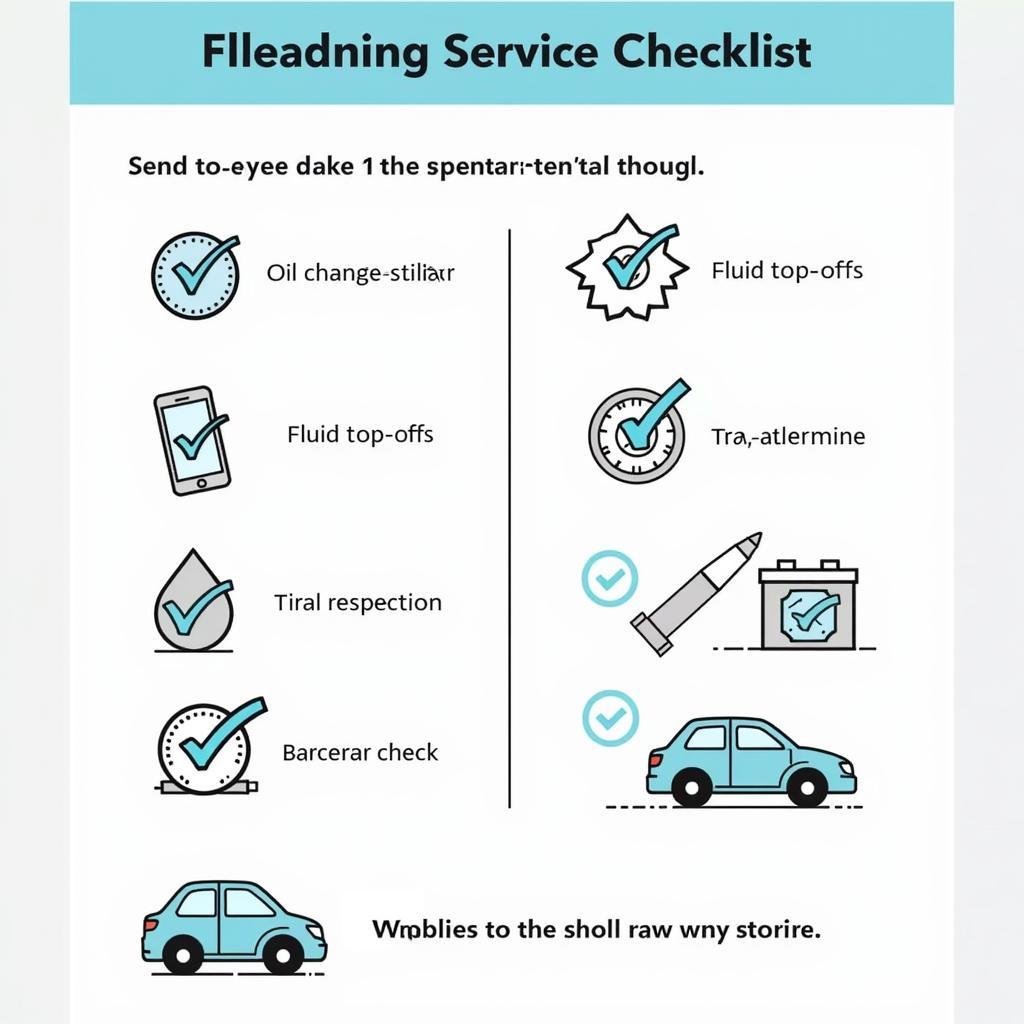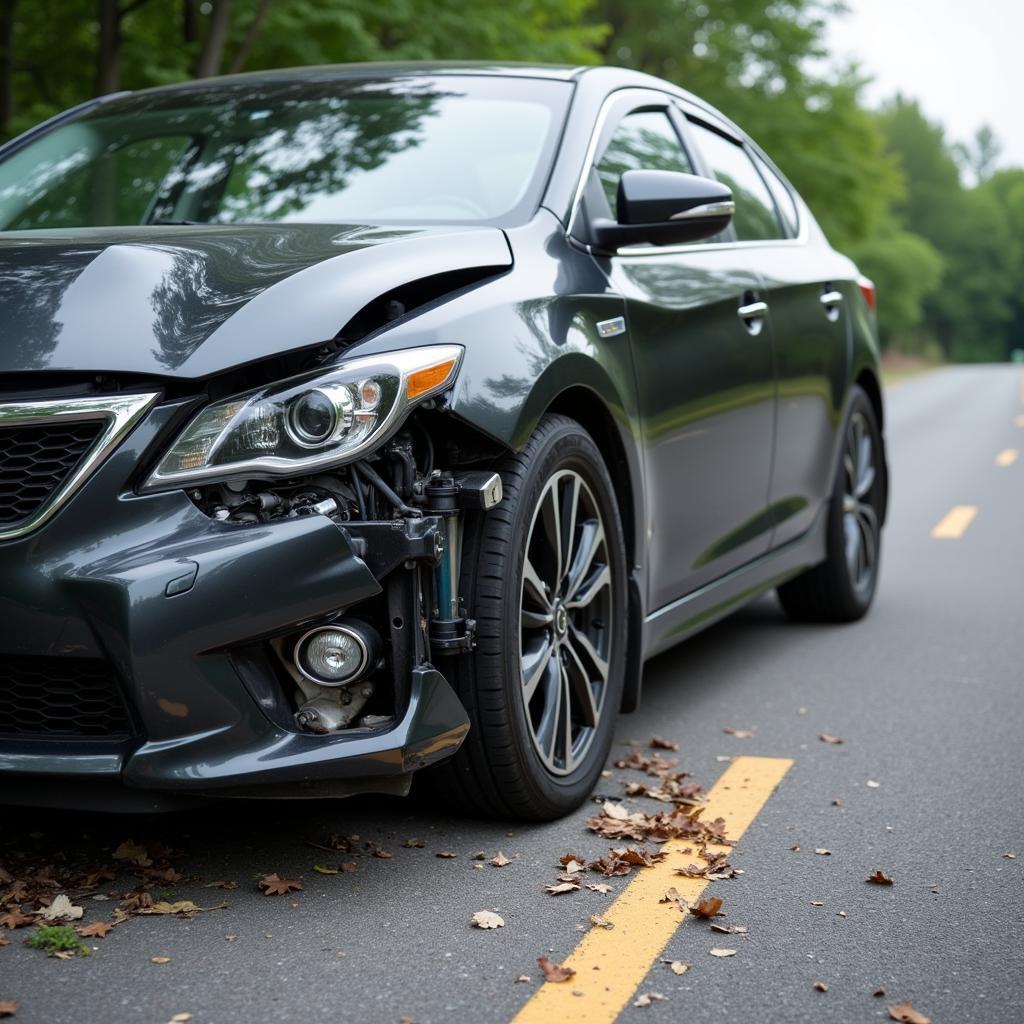What is PMS in Car Service?
Preventative Maintenance Service, or PMS, is crucial for keeping your car running smoothly and avoiding costly repairs down the road. It involves regular inspections, checks, and part replacements based on your car’s manufacturer recommendations and usage. Understanding what PMS entails can help you maximize your car’s lifespan, performance, and resale value. Learn more about what a car PMS service includes and why it’s so important.
Understanding the Importance of Car PMS
PMS isn’t just about changing your oil. It’s a comprehensive approach to car care that addresses potential problems before they become major headaches. Think of it like visiting your doctor for a check-up—catching issues early can save you time, money, and stress in the long run. Regular PMS can also improve fuel efficiency, enhance safety, and provide peace of mind knowing your vehicle is in top condition. Want to know more about when your car needs servicing? Check out this helpful article: when do i get my new car serviced.
What Does a PMS Schedule Typically Include?
A typical PMS schedule includes checks and replacements at specific mileage intervals. These intervals vary depending on the make and model of your car, but common PMS services include oil changes, filter replacements (air, fuel, cabin), fluid top-offs (brake fluid, coolant, power steering fluid), tire rotations, brake inspections, and battery checks. More complex services, like spark plug replacement or timing belt replacement, are also part of the PMS schedule but occur less frequently.
 Car PMS Checklist Image
Car PMS Checklist Image
How to Determine Your Car’s PMS Schedule
Your car’s owner’s manual is the best resource for determining the recommended PMS schedule. It will outline specific services and their corresponding mileage intervals. You can also consult with a trusted mechanic or service advisor for personalized recommendations based on your driving habits and local conditions. Knowing what the service light on your car means is also important. Learn more here: what is the service light on a car.
What are the Benefits of Following a PMS Schedule?
Following a regular PMS schedule offers numerous benefits, including:
- Extended Vehicle Lifespan: Regular maintenance helps prevent premature wear and tear on critical components, extending the life of your vehicle.
- Improved Fuel Efficiency: Clean filters, fresh fluids, and properly inflated tires contribute to optimal fuel economy.
- Enhanced Safety: Regular brake inspections and other safety checks ensure your vehicle is safe to operate.
- Higher Resale Value: A well-maintained vehicle with a documented service history commands a higher resale value.
- Reduced Risk of Breakdowns: PMS helps identify and address potential problems before they lead to unexpected breakdowns.
PMS vs. Repairs: What’s the Difference?
PMS is proactive, focusing on preventing problems before they occur. Repairs, on the other hand, are reactive, addressing problems after they’ve developed. Think of PMS as an investment in your car’s long-term health, while repairs are often unexpected expenses. If your car is already telling you it needs service, understanding why is crucial: why does my car say service now.
What Happens if I Skip PMS?
Skipping PMS can lead to a cascade of problems, ranging from reduced fuel efficiency and performance to costly repairs and even safety hazards. Neglecting regular maintenance can void your car’s warranty and significantly decrease its resale value. Knowing the various car service symbols can also be helpful: what are the symbols of car for services.
Expert Insight: John Smith, ASE Master Technician, emphasizes, “Regular PMS is the single most important thing you can do to extend the life of your car and avoid expensive repairs. It’s a small investment that pays off big in the long run.”
 Consequences of Skipping Car PMS
Consequences of Skipping Car PMS
Conclusion
Understanding what PMS in car service entails is crucial for every car owner. By following a regular PMS schedule, you can ensure your vehicle runs smoothly, safely, and efficiently for years to come. Don’t wait for problems to arise—invest in preventative maintenance and enjoy the peace of mind that comes with knowing your car is in top condition. How can you tell if your car needs a service? Find out here: how to find out if your car needs a service.
FAQ
- How often should I get my car serviced? Refer to your owner’s manual for the recommended PMS schedule.
- What is included in a basic car service? Typically, oil changes, filter replacements, and fluid top-offs.
- How much does a car service cost? Costs vary depending on the services performed and your location.
- Can I do PMS myself? Some basic maintenance tasks can be done at home, but more complex services require professional expertise.
- Why is PMS important? PMS extends vehicle lifespan, improves fuel efficiency, enhances safety, and increases resale value.
- What happens if I don’t service my car? Skipping PMS can lead to reduced performance, costly repairs, and safety hazards.
- How do I find a reliable car service center? Ask for recommendations, read online reviews, and look for certifications.
Need assistance with your car’s PMS? Contact us via WhatsApp: +1(641)206-8880, Email: [email protected] or visit us at 456 Oak Avenue, Miami, FL 33101, USA. Our 24/7 customer service team is ready to help.
